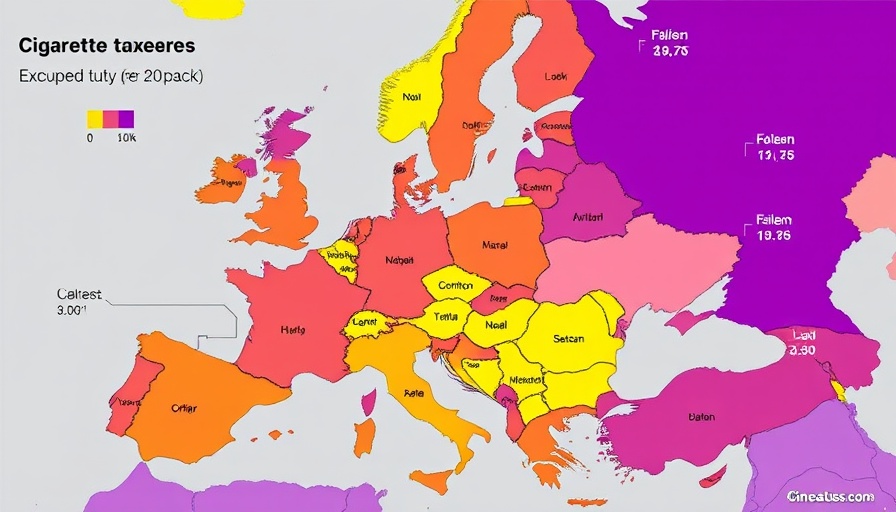
Understanding the Cascading Effects of Federal Tax Policies
The recent passage of the One Big Beautiful Bill Act (OBBBA) introduces changes that ripple through states' tax frameworks. For CPAs and small to medium businesses, this can entail a complex navigation of the new tax landscape. Given that many states align their tax codes with federal regulations, the implications can be dire and diverse. From increased deductions that may not finally benefit taxpayers to provisions that stimulate growth in business investments, understanding these variables is critical.
The Good: Economic Growth through Business Provisions
One of the notable aspects of the OBBBA is its business-oriented provisions aimed at boosting economic dynamism. By removing existing barriers to investment, the act endeavors to open up new avenues for job creation and economic expansion. Small businesses, often the backbone of local economies, stand to gain significantly from these changes as they could more easily secure funding and expand their operations. This infusion of cash into state economies could lead to job creation and higher state revenues in the long run.
The Bad and the Complex: Personal Deductions with Limited Benefits
However, not all the changes reflected in the OBBBA are advantageous. The act introduces new personal deductions that, while intended to aid taxpayers, may actually impose a greater tax burden in practical implementation. These complexities in personal taxation might confuse many, ultimately leading taxpayers to feel overwhelmed by the paperwork and the tax system’s labyrinthine nature. CPAs and tax advisors will need to prepare to guide clients through these changes.
Coping with the Changes: Recommendations for CPAs and Businesses
In light of these changes, it is advisable for CPAs and small to medium businesses to stay informed through continuous education on tax implications stemming from the OBBBA. Establishing proactive tax planning strategies can mitigate potential negative impacts. For instance, businesses can evaluate their expenditure strategies in light of the provisions designed to stimulate growth. Additionally, leveraging technology can help automate compliance with the new regulations, allowing for streamlined processes and reducing the stress of evolving tax requirements.
Future Predictions: Long-Term Impacts on State Budgets
As the OBBBA unfolds over time, its long-term impacts on state budgets are yet to be fully realized. Tax experts anticipate that businesses leveraging federal incentives could result in enhanced state revenues, but the trajectory is contingent on how well states adapt to these federal changes. Emerging trends suggest that states will need to assess their competitiveness in attracting businesses and investments relative to their tax policies, which could lead to further reforms in state tax codes to align with new federal directions.
Conclusion: The Need for Ongoing Analysis
As CPAs navigate these new waters, it becomes imperative to maintain a dual focus: understanding the immediate implications for businesses while also plotting a course for future planning in a constantly changing tax landscape. With the OBBBA setting forth new laws, the potential for increased economic growth exists, but so do challenges that require nimble responses and informed strategies. Continuous education and proactive planning are key to leveraging the benefits of these revisions while mitigating the risks they present.
Call to Action: Stay Ahead of the Curve
Don’t wait for the changes to unfold haphazardly; equip yourself with knowledge and strategy. Sign up for updates from trusted tax experts to stay informed about the tax policies that could impact your business and your clients. This foresight allows you and your clients to make informed decisions, strategy optimizations, and ultimately achieve better financial outcomes.
 Add Row
Add Row  Add
Add 




Write A Comment